Description
BECE 2013 Mathematics Questions and Answers
The Basic Education Certificate Examination, which is sometimes known to as the BECE, is a significant achievement that is of particular importance to students who are currently enrolled in institutions that are located in West African countries. It is the responsibility of the West African Examinations Council (WAEC) to conduct the Basic Education Certificate Examination (BECE), which is a test that is used to evaluate the level of proficiency and readiness of junior high school students who are intending to transition into senior high school.
Due to the fact that mathematics will continue to play a big role in this examination, it is absolutely necessary to have a strong comprehension of the fundamental concepts in order to achieve academic success. A complete analysis of the problems and answers that were included in the BECE 2013 Mathematics examination may be found on this page at your disposal. The purpose of this is to provide students and teachers with insights into the many types of obstacles, as well as suggestions and tactics for improving their performance in the subject matter.
Understanding the BECE Mathematics Exam Structure
The Basic Educational Competency Examination (BECE) in Mathematics covers a wide variety of topics that are associated with fundamental mathematics. These topics include algebra, geometry, number operations, and data handling. There were two basic modules that comprised the test that was administered in the year 2013, and they were the Objective and the Theory. The students’ knowledge is tested in a different way at each level, with a focus placed on both fundamental mathematical skills and the capacity to solve problems respectively. However, the evaluation process is consistent throughout the entire process. On the other hand, the theory section asks individuals to solve problems in a step-by-step way, whilst the objective section is made of questions with multiple choice solutions.
Topics Covered in BECE 2013 Mathematics
The mathematical problems that were assigned in 2013 included a wide variety of significant subjects, including the following:
- Algebra: This includes basic algebraic expressions, solving simple equations, and applying algebra to solve real-world problems.
- Geometry and Trigonometry: Focused on understanding shapes, angles, symmetry, and basic trigonometric ratios.
- Number Operations: Tested on arithmetic operations, fractions, decimals, percentages, and factors.
- Mensuration: Involved calculations related to the area, perimeter, and volume of different shapes.
- Statistics and Data Handling: Included questions on data interpretation, mean, mode, and median.

Sample BECE 2013 Mathematics Questions and Solutions
Understanding typical question patterns and effective approaches for finding solutions is made possible for students via the practice of reviewing example problems from the BECE 2013 exam. The practice of evaluating the questions is exactly what is required to reach this goal. Following is a list of few examples to illustrate the point:
Objective Question Example
Question: Calculate the area of a rectangle with a length of 10 cm and a width of 5 cm.
Solution: The area of a rectangle is calculated by multiplying the length by the width.
Answer: 10 cm×5 cm=50 cm210 \, \text{cm} \times 5 \, \text{cm} = 50 \, \text{cm}^2
This type of question tests students’ understanding of basic area calculations, which is a common topic in BECE exams.
Theory Question Example
Question: A shop owner sold 120 pieces of mangoes in one week at $0.50 each. Calculate the total earnings from the mango sales for that week.
Solution: Multiply the number of mangoes by the price per mango.
Answer: 120×0.50=60120 \times 0.50 = 60. Total earnings were $60.
This question not only tests multiplication skills but also practical understanding of real-world applications of math.

Strategies for Answering BECE Mathematics Questions
To effectively tackle BECE mathematics questions, students should adopt the following strategies:
- Understand the Question Requirements: Carefully read each question, paying attention to keywords and required units.
- Master Basic Formulas: Memorize key formulas for geometry, algebra, and trigonometry as these often appear in both objective and theory questions.
- Show All Workings: In the theory section, students should detail each step of their solutions, as partial credit is often awarded for correctly followed steps even if the final answer is incorrect.
- Practice Time Management: Allocate time wisely between the objective and theory sections to avoid rushing through questions.
Frequently Asked Questions About BECE Mathematics
Q: How important is the BECE Mathematics exam for my academic future?
A: BECE Mathematics is crucial as it forms part of the admission criteria into senior high school. A strong performance can open doors to top schools and academic scholarships.
Q: What is the passing mark for BECE Mathematics?
A: The BECE grading system varies, but generally, a score above 50% is considered satisfactory. However, competitive senior high schools may require higher scores.
Q: Can I use a calculator in the BECE Mathematics exam?
A: Yes, students are permitted to use calculators for BECE Mathematics, though a strong understanding of manual calculations is also essential.
Tips for Teachers and Parents
The preparation of students for the BECE Mathematics examination is a process that involves both teachers and parents playing a significant role. The significance of promoting ongoing practice and evaluation cannot be stressed, especially in light of recent concerns such as BECE 2013, which has been brought up. When it comes to providing help, parents have the ability to do so by providing materials such as textbooks, booklets that have prior questions, and study environments that are quiet. When it comes to subjects that are difficult to comprehend, such as algebra and geometry, it is essential for teachers to focus their attention on areas in which students typically struggle and to offer additional sessions for those subjects.
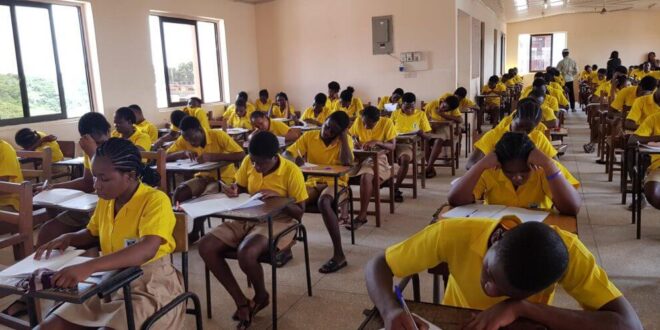
Conclusion
By reviewing the BECE 2013 Mathematics questions, students have the opportunity to acquire valuable insights into the types of questions that they might anticipate seeing on the examination. Students can dramatically enhance their chances of passing the BECE Mathematics test by reviewing past problems, remembering formulas, and following systematic study routines. This will allow them to significantly improve their chances of passing the exam. Not only does gaining success in this subject strengthen one’s sense of self-confidence, but it also creates a firm foundation for academic success in consecutive years of senior high school in the future.
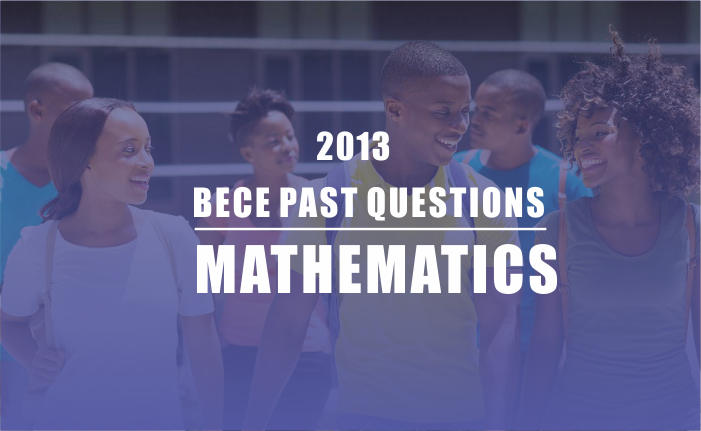

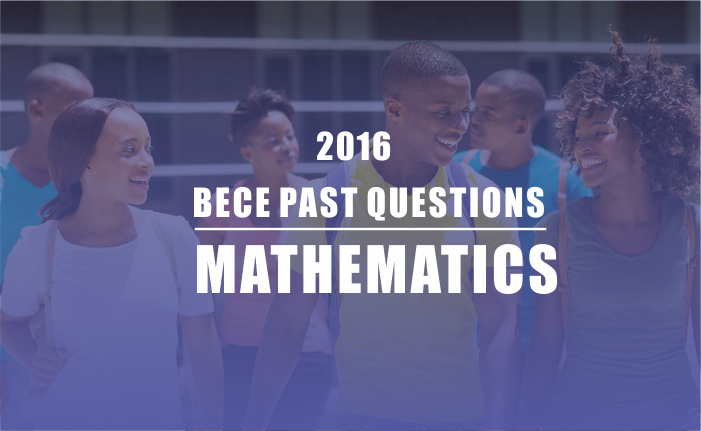
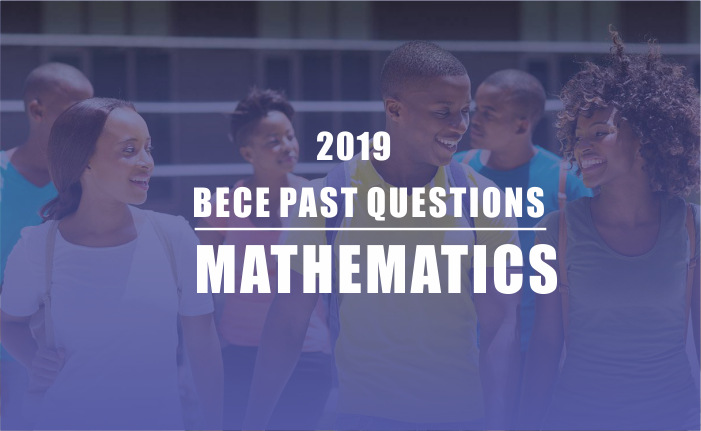
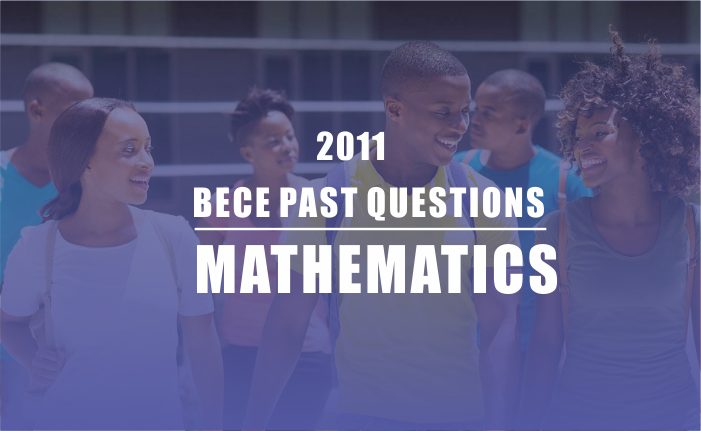
Reviews
There are no reviews yet.